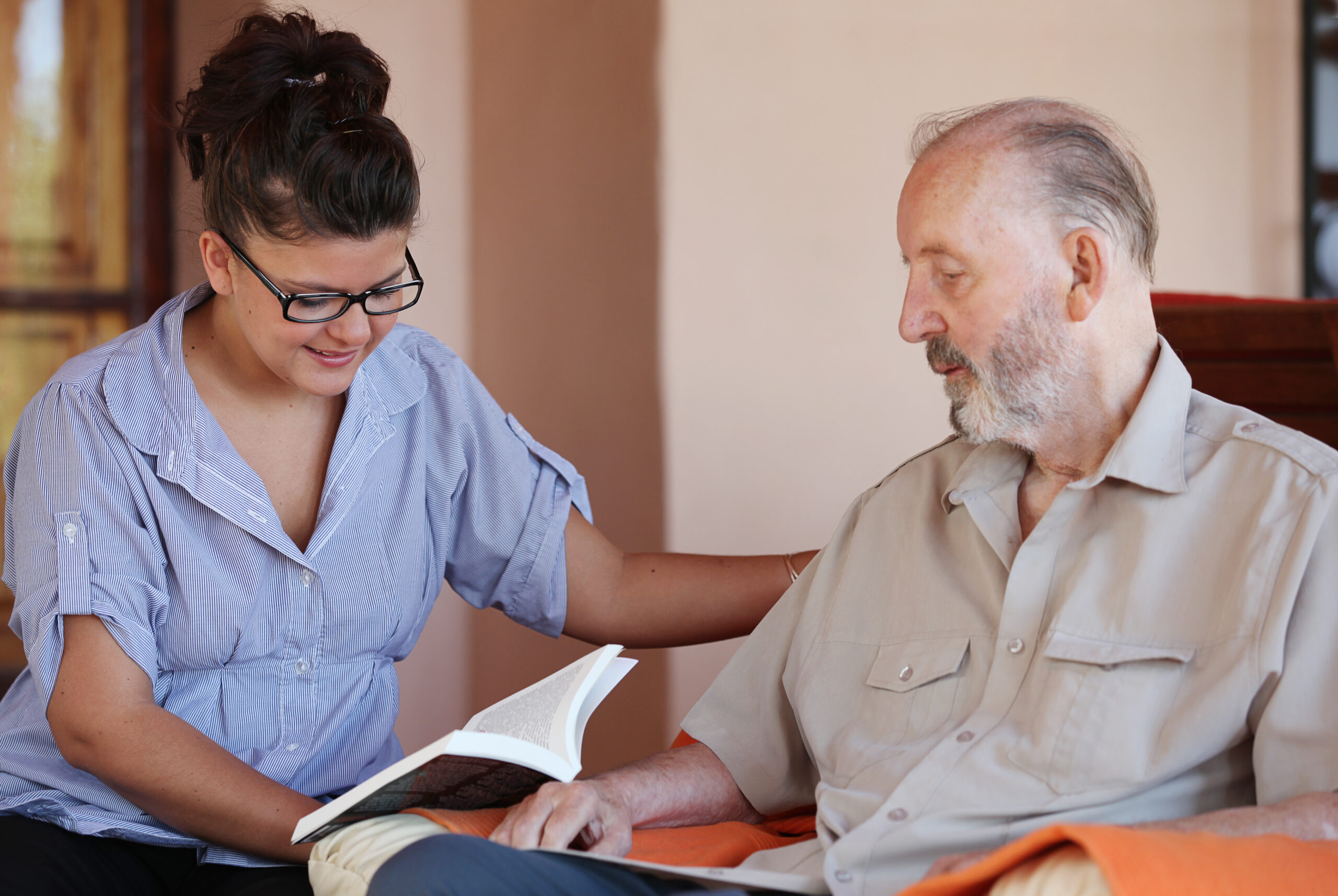
No two days are the same for Alice Whaley, LPN. The Traditions Health hospice volunteer coordinator oversees 13 volunteers at two agencies in Georgia — one in Lawrenceville and one in Roswell. Most days, you can find her either training new recruits, processing their background checks, hanging flyers at nearby cafés and colleges, visiting patients with first-time volunteers, or some combination of these.
“Volunteers are treated just like employees here,” Whaley says. “Whatever’s required of our employees, we require of our volunteers. That’s important because volunteers enter patients’ homes. So, they should be both fully vetted and fully prepared.”
A vital role in hospice care
She’s worked as a volunteer coordinator for more than six years, but before that, was a hospice nurse for 23 years. During that time, she’s come to understand what patients need, and how volunteers can add value.
While it’s true The Centers for Medicare & Medicaid Services (CMS) require volunteers to perform 5% of direct patient care hours per month for hospice agencies, she insists their contributions go far beyond simply meeting that goal.
“Sometimes the fact that we’re required to have volunteers somehow diminishes the value they bring in people’s minds. It’s so important to understand the vital role these volunteers play in providing compassionate hospice care,” Whaley adds.
The nurses, chaplains, social workers, and home health aides who make up the other 95% of the direct patient care hours each month all have tasks they have to complete, including taking a patient’s vital signs or even bathing them. Volunteers, on the other hand, don’t have any jobs to perform except spending time with patients.
“That means they can just be that friend our patients need — whether that involves holding their hand, sitting with them while they cry, or listening when they need to feel heard. So many of our patients have such amazing life stories to tell, and we only get to hear a tiny bit of them,” Whaley admits. “But it means so much to them to share those stories.”
She also mentioned seeing volunteers step outside the box for patients every day, and was able to share a few recent examples:
- One volunteer would read to a patient who used to be an avid reader before losing her eyesight. The volunteer took it one step further by setting up a way for the library to mail audiobooks to the patient.
- Another volunteer took it upon herself to download German music to play for a patient who loved music. The patient had reverted to only communicating in that language, which was her native tongue.
And that’s why she wants to recognize their contributions this April during National Volunteer Week — and every day.
A growing need for volunteers
As people work longer and longer in life — to ages well past 65 — the need for volunteers is increasingly important.
Many Traditions Health hospice volunteers are college students who need to fulfill a certain number of volunteer hours in the healthcare field. And some are women who have grown kids, time on their hands, and a desire to give back.
“A lot of people who’ve reached retirement age are either still working, traveling, or taking care of grandkids,” Whaley adds. “And that affects the number of visitors many hospice patients receive, too. They have families who work or who don’t live close by, so they don’t visit as much. Our volunteers help fill that need.”
If you’re interested in volunteering with Traditions Health, email [email protected] to learn more.